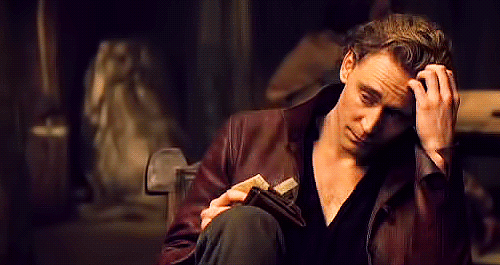I’m trying to clean my Inbox. I have thousands and thousands of messages and I’m overwhelmed all the time. Thousands and thousands, millions and millions…prompts, queries, bot-messages, subscriptions, commercials, on-sale-now, don’t-miss-out, special-just-for-you. I spend about twenty minutes a day unsubscribing, and still the world pours forth with noise, noise, noise, like Whos down in Whoville in a capitalist nightmare, jockeying to sell their tartookas and slooslunkas, and I sometimes find a real message from a real friend, and I flag it so I can pretend like I’ll respond before my kids graduate high school.
So as I was sorting through things, I came across a Kirkus book review e-mail claiming there were 16 books I could read in January. They were all starred reviews, that singular rating that connotes “oh, ho, ho, isn’t this fancy.” And they had a bunch to recommend for January. 16! Okay, Kirkus, I see your proposed 16 books and raise you no childcare, a teaching gig, and two small children, one of whom recently quit taking a morning nap. Boy, did they ever rise to the challenge by listing 16 books I am absolutely not going to read. They are about either dysfunction, trauma, discord, dismantling, bullying, or country music.
I’m kidding. I’ll read that one about country music.
The trouble with now is that there’s all this trouble. Do you think that’s new? I’ve been reading a lot of Shakespeare lately (I know, I know, how dull and pretentious—but it takes me several reads to understand the plot, so don’t roll your eyes), and what I’m gathering is that everything is overwhelming, everything is trouble. There’s a fabulous series (in case, like me, you didn’t totally understand even with No Fear Shakespeare explaining everything) called The Hollow Crown put out by the BBC a few years ago showing Richard II, Henry IV Parts 1 and 2, and Henry V. I rejected my life today and punted my kids to my husband and watched television ALL DAY so I could finish the series (and return it to the library, which has been sending me overdue notices for a week now, I discovered in my Inbox, because they haven’t read that paragraph above about no childcare and fewer naps, which equals no movies). I learned from a whole day of television that the trouble with being king is that you have to be king. And boohoo for kings. (Spoiler: everyone eventually dies, even kings.)
And I also started thinking a lot about how we live for things that are fundamentally insubstantial. I mean that in the most literal form: the things we live for do not have substance. I mean, you can say you live for your children or for your motherland or for…surfing. Whatever. But even though those things have a physical reality, they are fundamentally ineffable. You live for your children’s joy, your own sense of purpose, a construction of the idea of a nation, a sense of freedom or dominance, or some other something. Or maybe you live for virtues—to be good, grateful, kind, self-sacrificing.
Falstaff has a great, cynical speech about this (in Act V, scene 1 of Henry IV Part 1, for those of you who, like me, have compulsive citation syndrome after eons of MLA essays, or click here to hear Orson Welles at it):
[...] Well, ’tis no matter. Honor pricks me on. Yea, but how if honor prick me off when I come on? How then? Can honor set to a leg? No. Or an arm? No. Or take away the grief of a wound? No. Honor hath no skill in surgery, then? No. What is honor? A word. What is in that word “honor”? What is that “honor”? Air. A trim reckoning. Who hath it? He that died o’ Wednesday. Doth he feel it? No. Doth he hear it? No. ’Tis insensible, then? Yea, to the dead. But will it not live with the living? No. Why? Detraction will not suffer it. Therefore, I’ll none of it. Honor is a mere scutcheon. And so ends my catechism.
Falstaff is such a false and clever philosopher! What is honor? Is it a surgeon who can remedy suffering? Is it worth dying for? Is it of value to the living, if they have to die to achieve it? I had to look up “scutcheon” while I was watching the movie: it’s an old shield or banner with the coat of arms, one that this context suggests is pretty meaningless, hanging up on a wall. (If you have ever inherited things from relatives and you’re not sure what they are except that your relatives kept them forty years, you know what a scutcheon is.)
His little back and forth questioning gets me: “Doth he feel it? No. Doth he hear it? No.” Falstaff gets somewhere with all his negative fencing. Honor is “a word” or “air.” Is that it? I guess in the most literal way, yes. Falstaff knows what it is to live for things that are not “insensible,” that is, the things we can feel and taste and hold. He lives for wine and women.
So, okay, it’s understood that Falstaff isn’t honorable or a good example. He’s a foil for Henry in his maturity, who gives a big old speech about honor and how much it’s really something and, boy, don’t we want to die for it!
So here’s my question: are you tired of this dichotomy? I don’t want to be devil’s advocate, but isn’t it exhausting to live for principles? Is virtue seriously its own reward? Are vegans sitting around eating salads and saying, “Boy! This virtue tastes fantastic!” As soon as I wrote that, I knew the answer was “yes,” so maybe that’s a bad example. But how often do you really take the high road and then feel great about it? The high road so often involves giving up the things you want. And there’s not some other, better reward. There’s just the knowledge that you maybe improved matters a little bit in a way you will probably have to take to your grave.
Well, that’s a dumb reward.
Henry gives his big honor speech, but then they win the battle and he gets to marry the French princess, so I feel like honor was a side reward but conquering France and marrying a babe was the actual reward (she probably wasn’t as much of a babe as the lady in the movie: everybody had really bad teeth—but still). Isn’t it easier to feel like honor is a great reward when it happens to come with power and money and women? The only way Falstaff could get that stuff was by stealing and hanging out in “bawdy” houses. We’re supposed to believe that Henry gives up all that “fun” so he can be honorable, but his honorable-ness manifests in a lot of the same material gains, only a million times more because he’s the government.
I don’t want to be a jerk; I love Henry V (especially in the very lovely form of Tom Hiddleston, whose sparkling white teeth and flawless skin made me laugh in all the scenes of him being at the bawdy houses because they made everyone else a caricature of medieval grossness but plopped this movie star in the middle of it without having the decency to grey out even one tooth). I love the St. Crispin Day speech. I love the armor and the horses and the big speeches after conquering foes. I love the courtship. I love the banners (the scutcheons!).
One of these things is not like the other...
But…but…do I want an honorable life? I’m no Falstaff. I eat a lot of salads (with silent but palpable virtue before my McDonald’s-scarfing husband). I’m mostly into harmless, tedious activities: classical music, Shakespeare, puzzles, knitting. I might go wild and watch an entire collection of Shakespeare plays in one day, but that’s me really indulging (I even had a beer!). So I have a pretty soft existence, and the question of honor doesn’t come up a whole lot. When you’re a parent, you’re sort of programmed to just take care of these other people and deprioritize a lot of your crummier impulses. And I’m for most of the boring stuff of middle-class virtues: moderation in food and drink, investing time in marriage and children, educating myself and my students and my family (about Beethoven, of course!). But what does any of that mean if it doesn’t involve giving up things I really want? How easy it is to feel virtuous when you feel no temptation (what the heck is a “cup of sack” and why would you drink anything called “sack”? Bleh!).
But sometimes I look at career performers and I think, “They’re doing something all the way. They probably have to give up a lot: time with their families, ordinary working hours, relaxing with friends, having predictable routines…” But isn’t there something…honorable about throwing your soul into what is fundamentally soulful work? Here is my one deep and suffocating temptation. Wouldn’t it be
magnificent to live for your calling alone?

Do you sometimes hate that It’s a Wonderful Life is such a resonant movie? Who wants to be that sad sack George Bailey? I don’t want to be the dutiful, duty-bound, principles-governed servant to society. No wonder he’s so grouchy! All those kids and that crumbling house. (On an unrelated note, we’ve re-piped our entire crumbling water system and have had to repair the leaky roof every summer and had termites and carpenter ants in our crumbling walls last year. Are all houses like the Bailey house? No? Just ours?)
Is being a musician a vice? How I long to throw my whole self into that sensible and transcendent pleasure. I think I don’t care about the rewards of virtue. Or even rewards. Or duty. I definitely don’t care about the Kirkus star or the sales or sorting through the quotidian debris. What is it we’re chasing in our ordinary lives? What is our reward for duty? Is duty its own reward? How dreadful! How dreadful.
All this is to say that I can’t even watch medieval British history without realizing—again—that if I don’t get to play some music with Sancho and Joel and Callie and Hannah soon, I’m going to throw this knitting into a lake and torch these miserable old walls and drop these kids off with my parents and empty my bank account and find some bohemian little apartment somewhere that probably has rats and roaches but also a piano and a community of players and there, oh there!, I’ll live a life of ecstasy, honor be damned. I would give up any dried old husk of faint virtue to succumb to that rapture again and again. If only I had Falstaff’s wile to seek his vices so assiduously! His talent for the agonies of indulgence! Where might I go to chase these violent delights? Is it a substantial place? Let it not be one of those things that’s a state of mind. Please let it not.
How about Denmark, guys? (I’m not to the tragedies in my Riverside yet; don’t ruin anything for me.)









I suppose I'll continue to haunt you in Denmark, then, Marmee. There is no escape.
:D